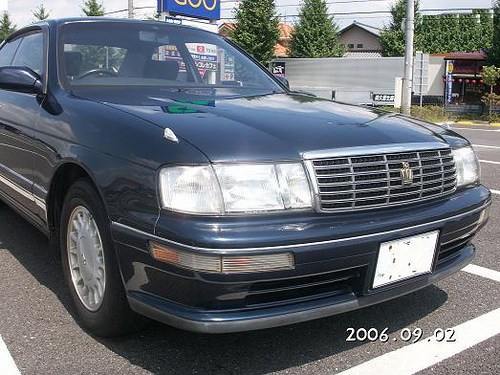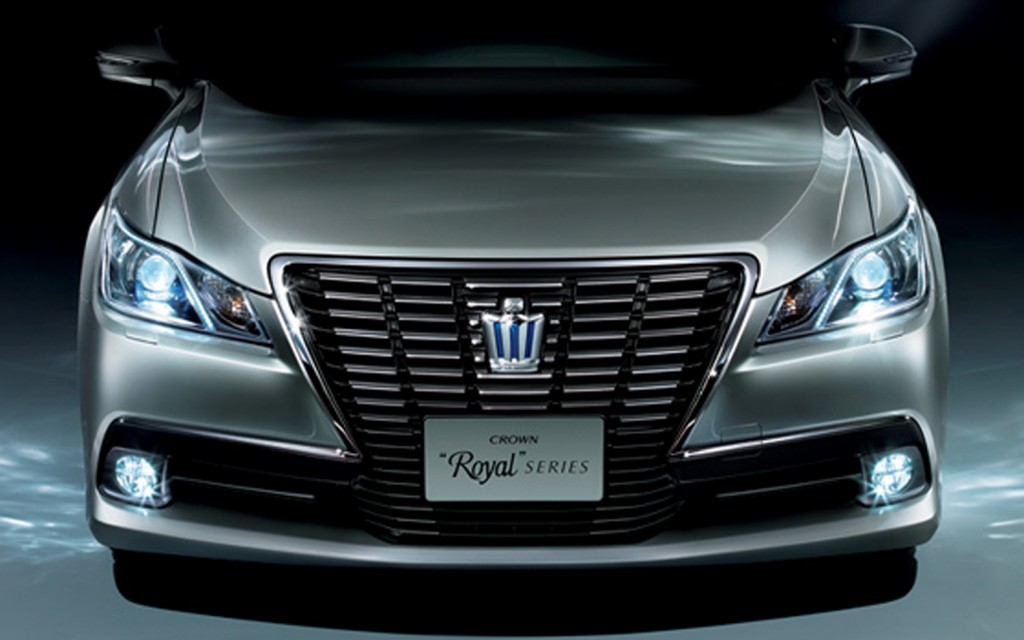Toyota / Toyota Royal Saloon

Specs
| Toyota Etios Diesel | 5 speed manual | 68HP (50 kW) @ 3800 rpm | |
|---|---|---|---|
| Toyota Etios Liva | 5 speed manual | 80HP (59 kW) @ 5600 rpm | |
| Toyota Etios Liva Diesel | 5 speed manual | 68HP (50 kW) @ 3800 rpm | |
| Toyota FCHV 5 | Automatic | 271HP (199 kW) @ 6200 rpm | |
| Toyota FT86 Coup?© | 6 speed manual | 200HP (147 kW) @ 7000 rpm | |
| Toyota FT86 Coup?© Automatic | 6 speed automatic | 200HP (147 kW) @ 7000 rpm | |
| Toyota FT86 Coupé | 6 speed manual | 200HP (147 kW) @ 7000 rpm | |
| Toyota FT86 Coupé Automatic | 6 speed automatic | 200HP (147 kW) @ 7000 rpm | |
| Toyota Retro Cruiser Concept | Automatic | 285HP (210 kW) @ 5400 rpm | |
| Toyota RT 20 Toyopet Tiara Sedan | manual | 64HP (47 kW) @ 4500 rpm | |
| Toyota TES Concept T-Sports | 5 speed manual | 110HP (81 kW) @ 7000 rpm |
Worldwide Trends
GEO Interests
Videos / Toyota Royal Saloon
Toyota Crown Royal Saloon V
2012 TOYOTA CROWN RoyalSaloon Exterior & Interior
Toyota Crown Royal Saloon 2.8
1995 Toyota Crown Royal Saloon JZS151 2500cc
Toyota Royal Saloon: the most elegant vehicle that you can ever get
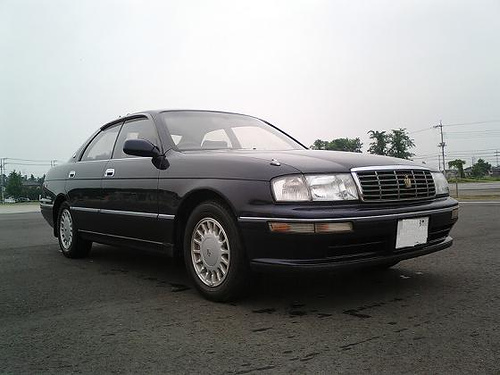 Overview
Overview
The Toyota Royal Saloon varies from a range of medium and full size luxurious sedans. Even though its prime concern was the Japanese market, it sold well in the other Asian countries as well. Its main purpose was that of a mainstream sedan. Nissan Cedric and Honda Legend have long been its competitors in the market. The availability of the vehicle in the Toyota dealers store has also made it easy for usage by the government. The government usage implies use either by the police or by other government officials for transportation purpose. Some of the Japanese companies use it as a company car along with a taxicab. Toyota Comfort was developed keeping in mind its affordability and the alternative facilities that it offered.
Initial generations
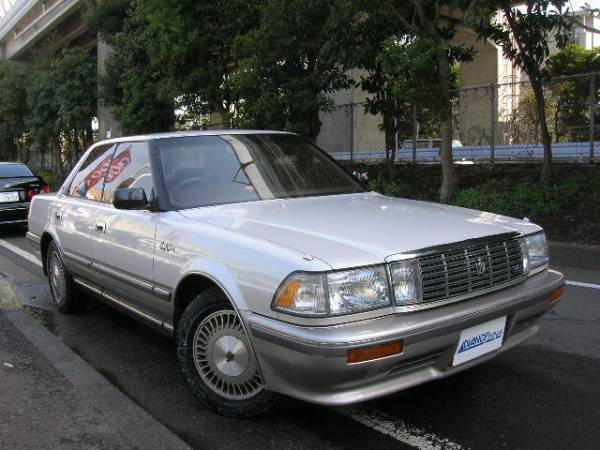 The corona greatly increased and enlarged the series S40 and was established way back in 1962. The modern appearance was characterised by a clean and an enlarged grille. The Toyoglide technique also provided a speed automatic transmission system.
The corona greatly increased and enlarged the series S40 and was established way back in 1962. The modern appearance was characterised by a clean and an enlarged grille. The Toyoglide technique also provided a speed automatic transmission system.
Crown Eight
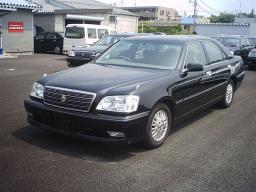 The car was more long and wide than the others. The V8 engine draws its power from 2.6L fuel tank. VG10 was a different designation of the same model. It was first introduced to the public in the Tokyo Motor Show. The sale of the car marked the initiation of the golden week for Japan. Full size American manufactured automobiles that were used by large business organizations were replaced by the crown eight model. It was the first car of the version that had classifications in length and width. The capacity of engine displacement and size of the vehicle were also added features.
The car was more long and wide than the others. The V8 engine draws its power from 2.6L fuel tank. VG10 was a different designation of the same model. It was first introduced to the public in the Tokyo Motor Show. The sale of the car marked the initiation of the golden week for Japan. Full size American manufactured automobiles that were used by large business organizations were replaced by the crown eight model. It was the first car of the version that had classifications in length and width. The capacity of engine displacement and size of the vehicle were also added features.
Crown comfort
The Toyota Royal Saloon had less exterior dimensions but provided more space and was taller than the other versions. To reduce the extra expenses incurred and to counter the weight, luxurious dashboards and fitments took place of the lighter plastic ones. It is also regarded as a vehicle commonly used to learn driving. The engine gets its power from either a diesel engine or a LPG engine. It has an automatically driver controlled rare door. It is a popular choice as a taxicab in Japan and Hong Kong. The vehicle has started to eventually lose its business mainly due to the availability of other cars at cheaper rates. The Crown Sedan is specifically aimed at the Japanese customers with a special emphasis on details that has long bumpers and back lights.
Exports
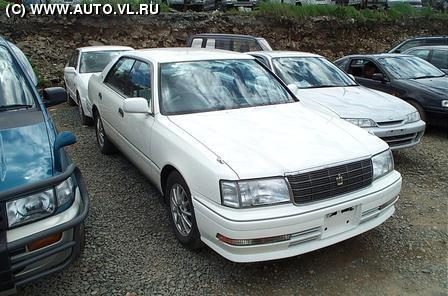 The car first began to be exported to Europe in the year 1964. Finland was the first to import the car. Very soon Netherlands and Belgium also joined in. Eventually Canada and United States also started importing while the importing from the other European nations increased gradually. Australia manufactured the same model of the car and got it ready for exporting purposes but by assembling several local components of the engine during the late 1980s. The marketing of Toyota also turned out to be very successful in Trinidad and Tobago as well. Imports from the other Red Indian islands were ultimately terminated mainly because of expense and lack of demand in the market. Increase in competition from the Lexus GS version was also a factor behind it.
The car first began to be exported to Europe in the year 1964. Finland was the first to import the car. Very soon Netherlands and Belgium also joined in. Eventually Canada and United States also started importing while the importing from the other European nations increased gradually. Australia manufactured the same model of the car and got it ready for exporting purposes but by assembling several local components of the engine during the late 1980s. The marketing of Toyota also turned out to be very successful in Trinidad and Tobago as well. Imports from the other Red Indian islands were ultimately terminated mainly because of expense and lack of demand in the market. Increase in competition from the Lexus GS version was also a factor behind it.















